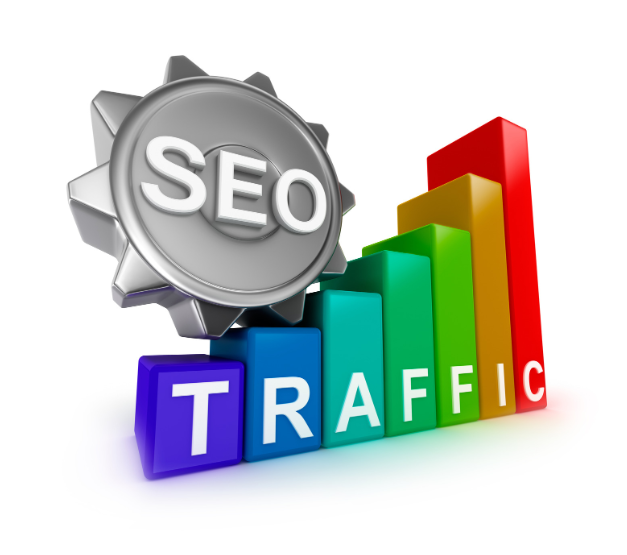In today’s competitive digital landscape, businesses need to focus on improving their online visibility to stay ahead of the curve. When it comes to enhancing your presence on search engines, there are two main strategies: SEO (Search Engine Optimization) and SEM (Search Engine Marketing). Both methods aim to improve website traffic, but they differ in approach, cost, and time to achieve results. Understanding the key differences between SEO and SEM can help you choose the right strategy for your business.
What is SEO (Search Engine Optimization)?
SEO stands for Search Engine Optimization, and it refers to the process of optimizing your website to rank higher in search engine results pages (SERPs). The goal of SEO is to increase organic traffic—visitors who find your site naturally through search engines like Google, rather than through paid ads.
SEO is a long-term strategy that focuses on improving your website’s content, structure, and authority. It involves techniques such as:
- On-Page SEO: Optimizing individual web pages by improving title tags, meta descriptions, keyword usage, and content quality.
- Off-Page SEO: Building backlinks, enhancing social signals, and other external factors that increase the credibility and authority of your website.
By focusing on these elements, SEO services help businesses improve their rankings on search engines, drive organic traffic, and ultimately boost conversions and sales over time.
What is SEM (Search Engine Marketing)?
SEM, or Search Engine Marketing, involves using paid search techniques to increase visibility in search engine results. Unlike SEO, which focuses on organic strategies, SEM primarily revolves around paid search ads. One of the most common forms of SEM is Google Ads, where businesses bid for specific keywords to show their ads at the top of search results.
SEM provides immediate results because paid ads can start driving traffic to your site as soon as the campaign is live. Businesses can use SEM to target specific keywords that are relevant to their products or services and gain quick visibility. With SEM, you only pay when users click on your ad, making it a pay-per-click (PPC) model.
Key Differences Between SEO and SEM
1. Cost Differences
One of the most significant differences between SEO and SEM is the cost structure.
- SEO is generally more cost-effective in the long run. Although it requires investment in time and resources for ongoing optimization, the traffic you generate through SEO is organic, meaning you don’t have to pay per click.
- SEM, on the other hand, involves an ongoing cost because you’re paying for each click (PPC). For highly competitive keywords, SEM can become quite expensive, but it offers immediate traffic and visibility.
For businesses with limited budgets, SEO can be a more sustainable and affordable option, while SEM might be better suited for businesses looking for instant visibility, even if it comes at a higher cost.
2. Time to Results
When it comes to the speed of results, SEO and SEM are very different:
- SEO is a long-term strategy. It may take months of consistent effort to see improvements in search rankings, but once your website starts ranking higher, the results tend to be more stable and enduring.
- SEM, on the other hand, offers immediate results. As soon as your paid ads go live, your website can begin receiving traffic. However, this traffic stops as soon as you stop paying for ads.
Businesses looking for quick exposure or those launching a new product may prefer SEM, while those aiming for long-term growth and consistent traffic would benefit from SEO.
3. Sustainability vs. Short-Term Gains
- SEO delivers sustainable, long-term growth. Once you achieve higher rankings through SEO, the traffic can continue to grow over time, especially if you maintain and update your website regularly. SEO helps build brand authority and trust, ensuring that your online presence remains strong.
- SEM, while effective for short-term gains, does not provide the same level of sustainability. Without constant funding, your website’s visibility can disappear as quickly as it appeared. SEM is a great tool for driving targeted traffic, but it doesn’t provide the lasting results that SEO can offer.
When Should You Choose SEO or SEM?
Choosing between SEO and SEM depends on several factors, including your business goals, budget, and timeline. Here are some scenarios to consider:
- Choose SEO if you want long-term growth and have the time to build your online presence steadily. SEO is a great option for businesses that want to grow sustainably without depending on paid ads.
- Choose SEM if you need immediate traffic and results. For new businesses, product launches, or time-sensitive campaigns, SEM can be a perfect short-term solution.
In many cases, businesses may find it beneficial to use both SEO and SEM. Combining both strategies allows you to capture instant traffic through SEM while working on building long-term organic growth with SEO.
How Web Boost Online Can Help
At Web Boost Online, we specialize in providing affordable SEO services that help businesses increase their online visibility and drive organic traffic. Our team of experts tailors strategies to suit your business needs, whether you’re looking to improve search engine rankings, enhance your online reputation, or boost conversions.
In addition to SEO, we offer SEM management services, helping you craft effective pay-per-click campaigns that bring quick results and help you target the right audience. Whether you need long-term SEO solutions or short-term SEM strategies, we’re here to help you succeed in the competitive online marketplace.
Get in touch with us today and take the first step toward improving your online visibility with affordable SEO and SEM services.
Takeaway
Both SEO and SEM are essential components of a successful digital marketing strategy. While SEO focuses on building sustainable, long-term growth through organic rankings, SEM offers immediate visibility through paid search ads. Understanding the strengths and differences of both strategies will help you choose the best approach based on your business goals, timeline, and budget.
Don’t settle for mediocrity; choose excellence with Web Boost Online. Our SEO services are the key to unlocking your website’s true potential and dominating the digital market.











